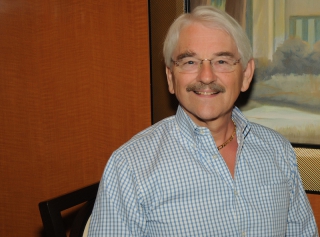
Reflection Questions for Teachers
07 August 2017Excellent teaching assessment strategies include asking questions about goals, teaching strategies and students’ reactions to material.
By Dr. Fred Mayo, CHE, CHT
Last month, we talked about reflecting on what we can learn by helping others. For this edition of Mayo’s Clinic, it may be more useful and productive to spend time practicing reflective teaching – assessing what we do that works, what doesn’t, and what we will try next. Therefore, this series of articles on professional development will end with reviewing a range of questions you can ask yourself as you reflect on your teaching.
As Mary Firestone wrote, “Reflective teaching is a process where teachers think over their teaching practices, analyzing how something was taught and how the practice might be improved or changed for better learning outcomes.” In the spirit of encouraging all of us to continue our practice of reflective teaching, here are three sets of questions to consider. Whether you write down answers or just mull them over, they may open new ways of thinking about what we do every day as part of our professional identity.
Questions to Ask About Our Goals
There are many questions to consider, and the first set focus on what we plan to do in a teaching situation. The questions to ask after a class is over include:
- What did I plan to accomplish?
- In what ways was I successful? In what ways was I not as successful as I expected?
- In what ways could I have done something different?
- What did my students understand from the class?
- What can they do after the class session?
- What happened that I did not plan for?
- What objectives did I meet and which did we not accomplish?
These questions urge us to consider our objectives for each class and the extent to which, in an overall way, they were accomplished or not.
Questions to Ask About Our Teaching Strategies
When we stop and think about what we plan to do and how well it worked or did not work, most of us start to evaluate our teaching strategies. Some of the most effective questions about teaching strategies include:
- How effective were the teaching activities I used?
- What worked in the lecture, demonstration, question and answer time, video, small group activity, or large group discussion?
- How well did the assignments and other materials help the students learn the material?
- What worked in the PowerPoint slides and what seemed to diminish student engagement? How can I revise these slides to make them more animated or interesting?
- What other resources or strategies could I have used?
- How effective and reasonable was the pace of the lecture?
- How can I do it better next time?
Sometimes, these questions benefit from reviewing them after each class; other times, they work best at the end of a teaching week. Whatever works for you, consider building the discipline of refection into your teaching schedule. It is amazing what quiet, reflective time can teach us.
Questions to Ask About the Students in Our Classes
Sometimes the most important questions are about our students:
- In what ways was the class too easy or too difficult for these students?
- In what ways did my lecture and demonstration keep the students engaged?
- Did the students stay on task?
- How did the students react to – as opposed to learn from – the activities?
- Did all the students participate in the lesson?
- What surprised me about the students’ behavior in the class? What delighted me about their behavior?
- Did the materials keep the students engaged in the lesson?
Pondering these questions reminds us to think about students’ perceptions of the class and helps us see the class session from their perspective. After all, they are the ones we are teaching.
Summary
Use the month of August as you plan for returning to the classroom – or continue if your program operates year round – and consider these questions. They may suggest new strategies for you or new ways to approach your students.
As the fall progresses, we will talk about specific teaching strategies. If you have suggestions for other topics or teaching practices you want to share, send them to me at This email address is being protected from spambots. You need JavaScript enabled to view it., and I will include them in future Mayo Clinics.
Dr. Fred Mayo, CHE, CHT, is retired as a clinical professor of hotel and tourism management at New York University. As principal of Mayo Consulting Services, he continues to teach around the globe and is a regular presenter at CAFÉ events nationwide.
